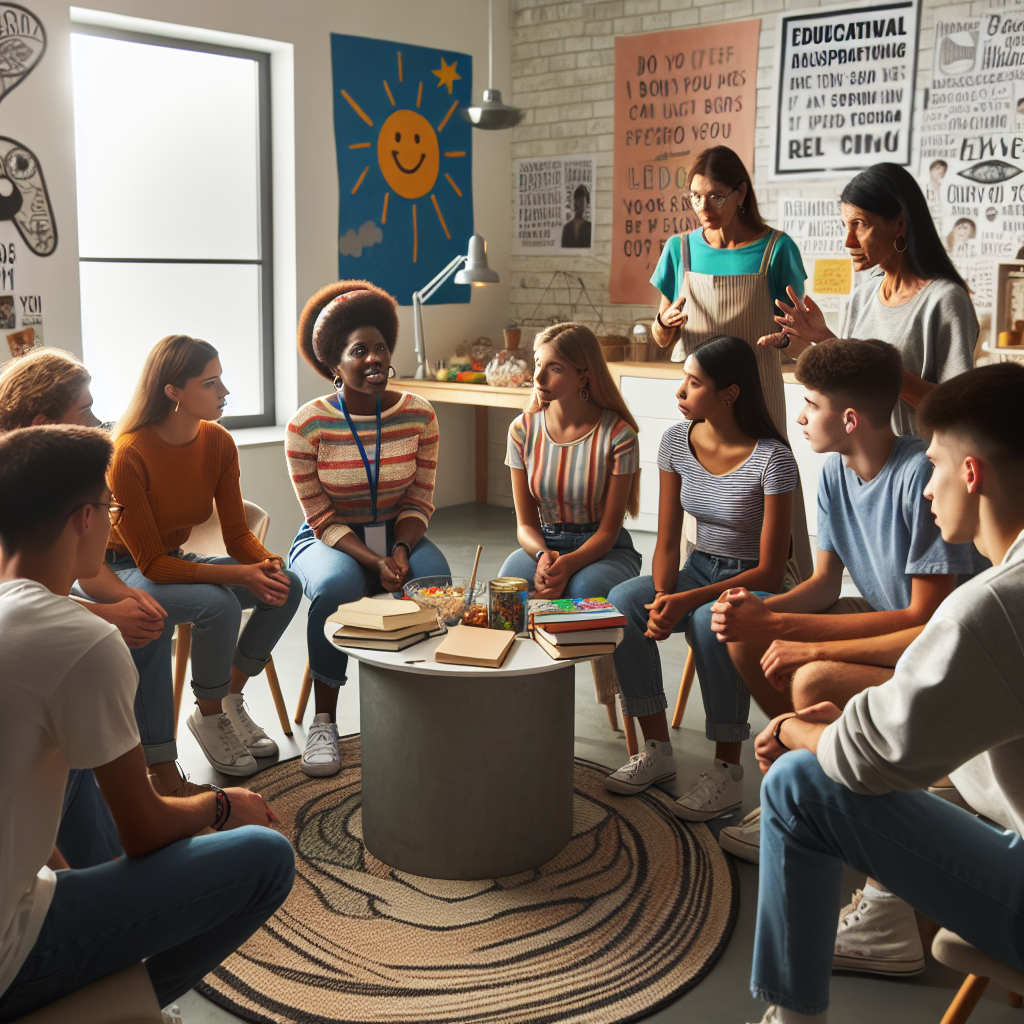Youth Leaders Declare Social Isolation a Global Health Crisis at WHO Event
By reframing social connection as a global public good, the GMWHO Youth Declaration aims to shift how governments, health systems, and international bodies approach wellness and preventive care.

Nearly 400 youth delegates from over 40 countries convened at the World Health Organization (WHO) headquarters in Geneva this week to issue a bold call to action: social isolation must be treated as a global public health priority. In a powerful culmination of the second in-person Global Model WHO (GMWHO), the delegates unanimously adopted the Global Model WHO Youth Declaration on Social Connection—a document that urges world leaders to recognize and respond to the escalating crisis of loneliness and disconnection affecting millions across generations.
"Digital Connection, Social Disconnection"
Addressing the gathering, Ida Marchese, Director-General of the Global Model WHO 2025, summed up the paradox confronting today's youth:
"Our generation has grown up in an age of digital connection but social disconnection. Social connection is the missing pillar of global health."
Her remarks struck a chord with attendees who spent four days simulating the World Health Assembly—the WHO's highest decision-making forum. The simulation gave youth the platform to debate and develop policy on a range of pressing global health issues, with social connection and mental well-being emerging as key concerns.
The Youth Declaration on Social Connection
The Youth Declaration calls for coordinated national and international strategies to:
-
Recognize social isolation and loneliness as urgent health threats
-
Invest in inclusive community-based programs that foster human connection
-
Promote digital policies that mitigate the isolating effects of technology
-
Elevate mental and social health as pillars of national well-being alongside physical health
Inspired by the findings of the WHO Commission on Social Connection, the declaration stresses that inclusion, empathy, and human relationships are not luxuries but core determinants of health and resilience.
"By acting with empathy, courage, and intentionality, we can transform isolation into belonging, silence into conversation, and indifference into collective care," the declaration reads.
A Response to Startling Global Data
The declaration echoes the recent findings of the WHO Commission on Social Connection, co-chaired by Dr. Vivek Murthy, Surgeon General of the United States, and Ms. Chido Mpemba, African Union Youth Envoy. The Commission has warned that:
-
1 in 6 people globally suffers from loneliness.
-
Social isolation is linked to over 871,000 deaths each year worldwide.
-
The risks associated with loneliness are comparable to smoking 15 cigarettes a day.
The urgency of addressing this crisis is magnified by the lasting social impacts of the COVID-19 pandemic, which exacerbated disconnection, especially among youth, older adults, and marginalized communities.
WHO and WFUNA: Empowering Youth Diplomacy
The GMWHO is a joint initiative between the World Health Organization and the World Federation of United Nations Associations (WFUNA). The event simulates the workings of the World Health Assembly, providing a platform for future health leaders to practice diplomacy, health policy formulation, and collaborative problem-solving.
"Connection strengthens not only individuals but the global systems we rely on," said WFUNA Secretary-General Aziel Goulandris. "This declaration shows the power of youth diplomacy to shape healthier societies."
Dr. Tedros: A Personal Call to Action
WHO Director-General Dr. Tedros Adhanom Ghebreyesus personally addressed the delegates at the closing ceremony, urging them to become agents of change:
"When you return home, carry this spirit of connection with you. Bring it to your families, your schools, your communities. Together, by building stronger human bonds, we can create healthier societies."
His remarks highlighted the importance of community action, compassion, and policy support in reversing the global isolation crisis.
Mental Health and Social Health: Intertwined Futures
Throughout the four-day summit, the youth delegates tackled a wide range of global health challenges—from vaccine hesitancy and digital health to migration and AI in medicine—but the issue of social connection emerged as a unifying theme, with its influence on mental health, community resilience, education, and productivity being evident across discussions.
By reframing social connection as a global public good, the GMWHO Youth Declaration aims to shift how governments, health systems, and international bodies approach wellness and preventive care.
The Road Ahead: From Awareness to Advocacy
The declaration is more than a symbolic gesture. Delegates are expected to carry the message home, engaging local governments, schools, and communities to develop culturally relevant solutions that bridge social divides and foster inclusive societies.
With mental and social health at the heart of sustainable development and peace-building, the young leaders of GMWHO have taken a bold step in redefining what it means to build a healthy world—one where no one feels alone or unseen.
ALSO READ
-
Rahul Gandhi wants to protect infiltrators who are grabbing foodgrain, jobs, benefits meant for the poor, alleges Amit Shah at Bihar rally.
-
Look at RJD-Congress posters, one who was Bihar CM for years, his photo has been relegated to corner: PM in apparent reference to Lalu.
-
WHO Calls for Unified Global Effort on World One Health Day
-
Those who once made fun of 'Beti Bachao Beti Padhao' are now thinking about how they insulted India's daughters: PM Modi in Saharsa.
-
It's PM, central leaders who are running Bihar govt, not Nitish, alleges Cong leader Priyanka Gandhi Vadra at rally in Saharsa.









